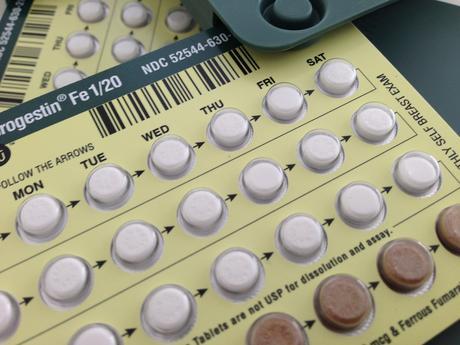
The truth about birth control
When my gynecologist said I needed to go on birth control pills at the age of 13, my mother was ecstatic. I’d been skipping multiple days of school every month since my period had started one year earlier — every month, I experienced nausea, overeating, mind-numbing cramps, and the type of bleeding that ruins denim jeans and a sensitive middle-school ego.
Little did I know, I wasn’t the only woman who felt this way about the joy that is having one’s period. A big reason I didn’t know was because my middle school health teacher decided to skip the sex education chapter, and with that chapter a loss of vital reproductive health information. My middle school friends and I rode the never-ending roller coaster of menstruation blindfolded.
I was also unaware how common taking the pill is among young women my age: In fact, about 79% of young women have used the pill or some form of contraception. But while many take it to help their bodies — whether for its health benefits or to prevent pregnancy — many are unaware that there are side effects, too.
Now I’m in my early 20s and have switched from the pill to an IUD (Intrauterine Device). Although I still experience intense mood swings, I know my method of choice is over 99.9% accurate in pregnancy prevention. If I had known at a younger age that I could’ve replaced the pill with another contraceptive method, I would’ve done so a long time ago and saved myself years of stress, fear of pregnancy, and the pill’s side effects and hormonal imbalance.
So, that said, here’s what I want all young women to know about birth control pills.
- The pill is more than 99.9% effective if used correctly.
But it’s this effective if, and only if, you use it correctly. According to Planned Parenthood, about nine out of every 100 women get pregnant if they forget to take the pill as prescribed. Certain medications and supplements can also make the pill less effective, which is why you should fill your doctor in whenever you add something new to your lifestyle, such as an antibiotic.
- It can cause blood clots in young women and make periods more painful.
Increased levels of estrogen are linked to blood clots, especially if you’re a heavy smoker. If there are any other changes in your body, such as abdominal pain, migraines, or a lump in your breast, talk to your doctor. Remember, it’s totally OK to take a day off work or miss a day of school if your menstruation is intense. P.S. Heat pads for cramps really help!
- The pill can deplete your B vitamins.
A problematic side effect of the pill is that it can be nutrient deficient. When women use oral contraceptives, they’re more likely to have lower levels of B vitamins compared to women who don’t take the pill. B vitamins affect metabolism of fats, proteins, and carbohydrates, so make sure you take a B vitamin supplement and/or a daily women’s multi-vitamin.
- The pill can help with acne.
As most teenagers know, there’s a clear relationship between hormones and acne. But, the pill can take care of certain medical conditions including acne, fertility, endometriosis, and other issues. The pill isn’t only a method of contraception, it’s a health solution.
- However, it can also cause mood swings, a change in behavior, or depression.
A recent study published in JAMA Psychiatry found that birth control methods, such as estrogen pills, IUD, and implants, may increase the risk of depression by about 23 percent. Researchers found that adolescents were at the greatest risk for depression and depressive-symptoms like anxiety, mood changes, and suicidal tendencies. Although the research doesn’t suggest that hormonal medication causes depression, there’s a strong link.
- The pill may not be right for you.
If you’re sensitive to estrogen, your doctor might suggest progrestin-only pills instead, which thicken the cervical mucus while thinning the uterine lining. Discuss the pill’s ingredients with your doctor to determine which kind is healthiest for you.
- The pill can lower your sex drive.
Studies show that the pill may lower androgen and block hormones that support sexuality. Despite this, the pill can also have a liberating effect on a woman’s sexuality: if you don’t have to worry about pregnancy, sex can be less stressful and more exciting. Of course, if you feel that the pill may be causing your libido loss, please talk to your doctor.
- The pill isn’t the only contraceptive method for teenagers.
There are so many more contraceptive methods out there for you to choose from! Other birth control methods include the birth control patch, the shot (Depo-Provera), the sponge (Today Sponge), the Vaginal Ring (NuvaRing), the IUD (Mirenna, Skyla, or Liletta), and many more. Visit Planned Parenthood or Birth Control and explore your birth control options.
If you’re a woman, I highly recommend researching your birth control method and talking to your doctor about your available options. So many of us still don’t know what is going on with our bodies other than the facts that we ovulate and menstruate every month. But if we actively learn and talk about our bodies, we can optimize our health and energy — and we all benefit from that.

